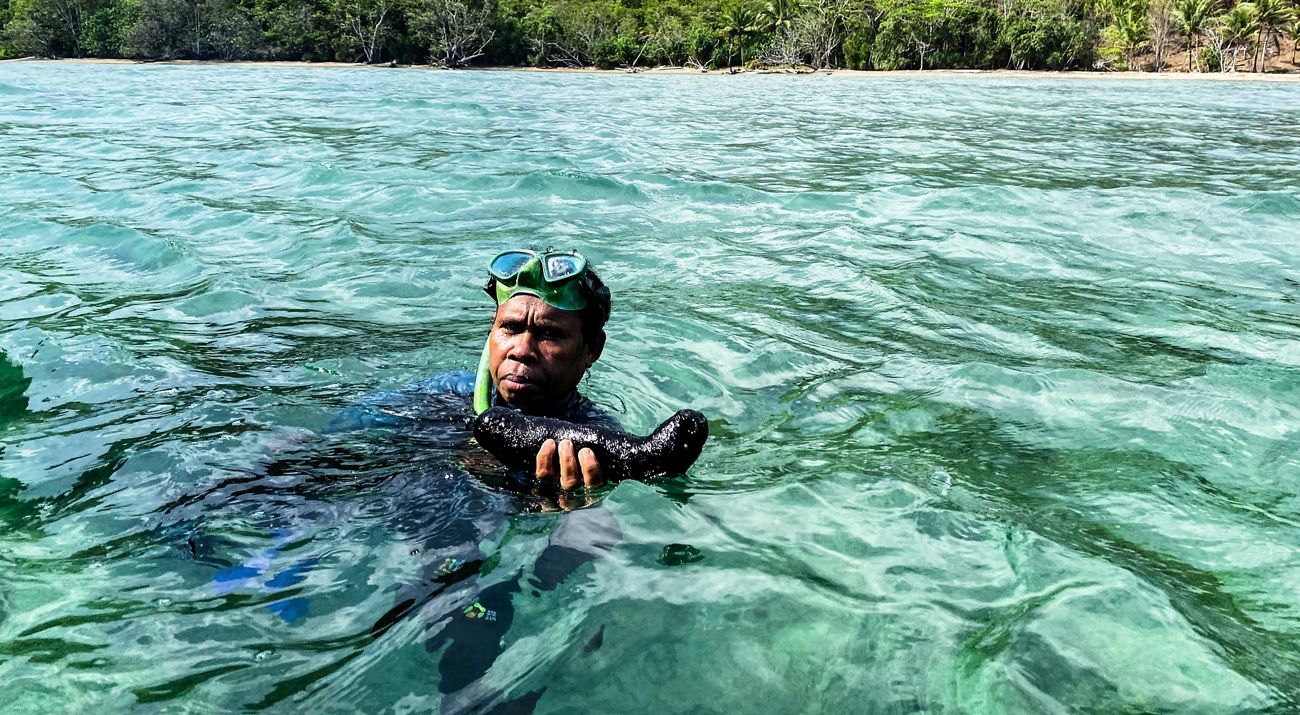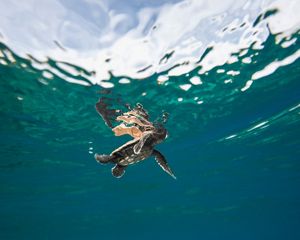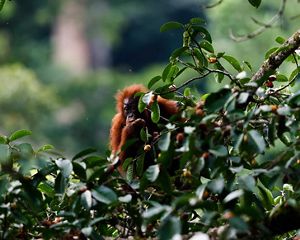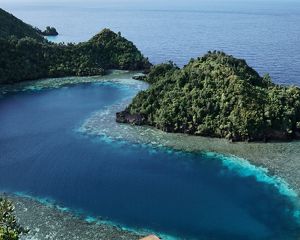The natural beauty of the Misool region accompanies the journey for approximately 6 hours to arrive at Aduwei village in North Misool, Raja Ampat Regency, West Papua.
That morning, the women's group in Aduwey Village, North Misool, looked busy. The long-awaited day has arrived, namely the opening ceremony of the sasi in Aduwei Village. The closing ceremony for this sasi was held on September 26, 2022. The sasi-breaking event is part of the traditions of the Matbat tribe in Aduwei Village, which also started with religious ceremonies.
Read: The Acknowledgement of Punan Batu Benau Sajau Indigenous People
After worshiping at the church to give thanks for all the Creator's gifts for this year's harvest, the group moved to the 3 locations where the sasi boards were installed. Upon arrival at each site, a traditional ritual is carried out as an opening, followed by cutting/removing the sasi panel to symbolize the start of the sea cucumber and lobster harvesting period in the sasi-opening.
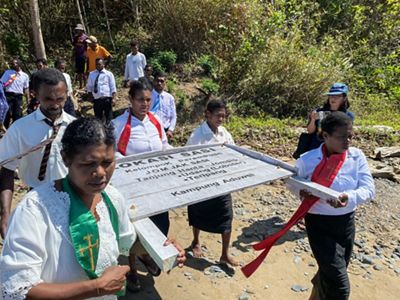
Sasi is a tradition that already exists among most indigenous communities in Papua and other regions of Eastern Indonesia. In Aduwei village, the practice of sasi has been a tradition passed down from generation to generation. What is remarkable is that the Jom Jak Sasi group is the first women's sasi group in this village and the second women's group in Papua, after the Waifuna group from Kapatcol village.
They practice sasi as part of their commitment to protecting the natural wealth where they live and maintaining ancestral traditions. With more than 60 members, this group is chaired by Mama Rebekah.
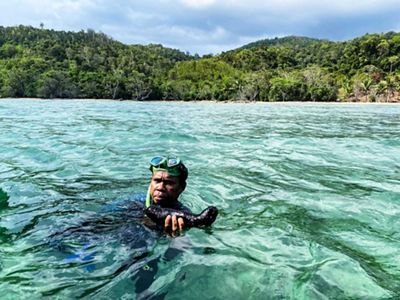
Mama Rebekah said, "Before, I didn't dare to speak, but since becoming group leader, I have dared to speak, and I have even been able to learn more, meeting other women's groups in Sorong and Kalimantan with YKAN," with a happy face. Mama Almina Kacili, the founder of the Waifuna group, was also present at this special event, opening the first sasi. "Last year, I came here to encourage the mothers here so that they would join together to form a Women's Sasi Group. I'm happy that this year they can open sasi."
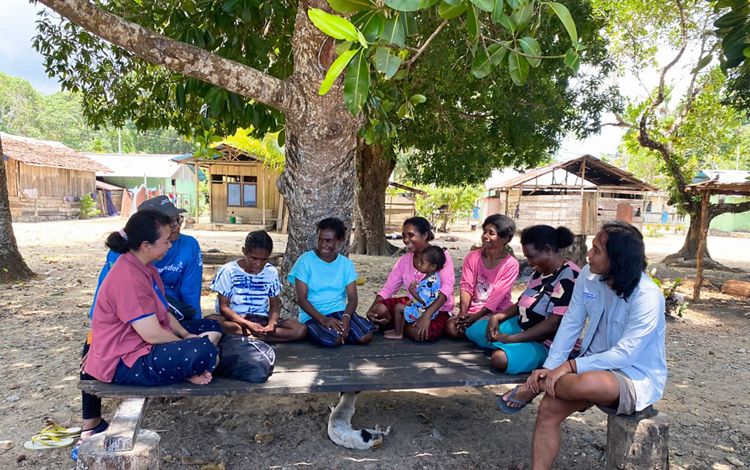
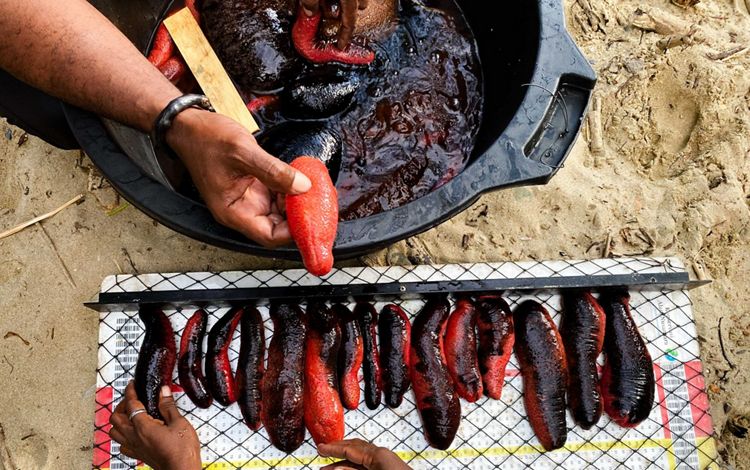
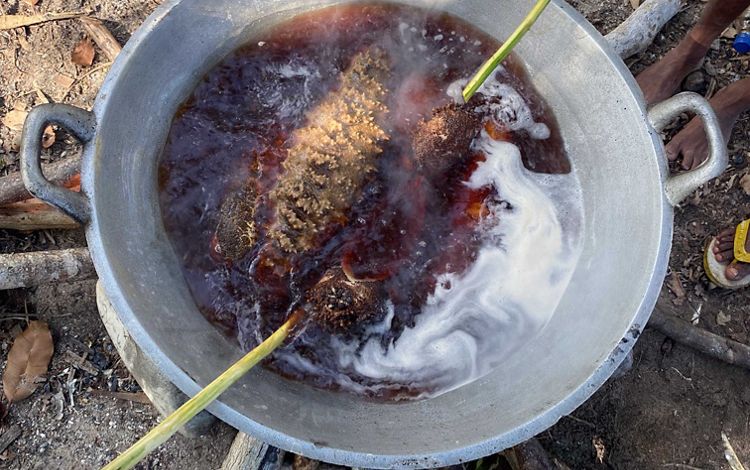
This group will manage The sasi harvest jointly with a distribution of 10% to the church, 30% to traditional groups, and the other 60% to the Jom Jak Sasi group's treasury. This group cash supports group members' needs, such as children's education costs.
YKAN has been present in Aduwei village since 2021 to assist the community in strengthening its commitment to protecting the area they live in with their traditional traditions. One is through the formation of the Jom Jak Sasi Women's Sasi Group in 2022.
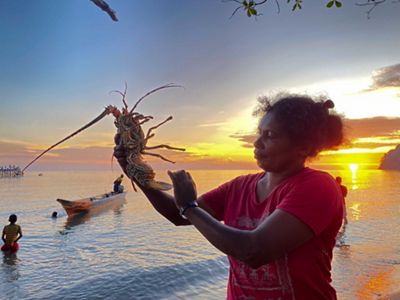
The activity of forming the Sasi group had various positive impacts. Not only to support the preservation of natural resources and economic improvement but also to increase the capacity of human resources, especially women, who often need to be prioritized in the structure of indigenous community groups.
Enjoy the results of this year's sasi. Hopefully, the results can continue to increase in the future, and other villages can be inspired to have women's sasi groups.


